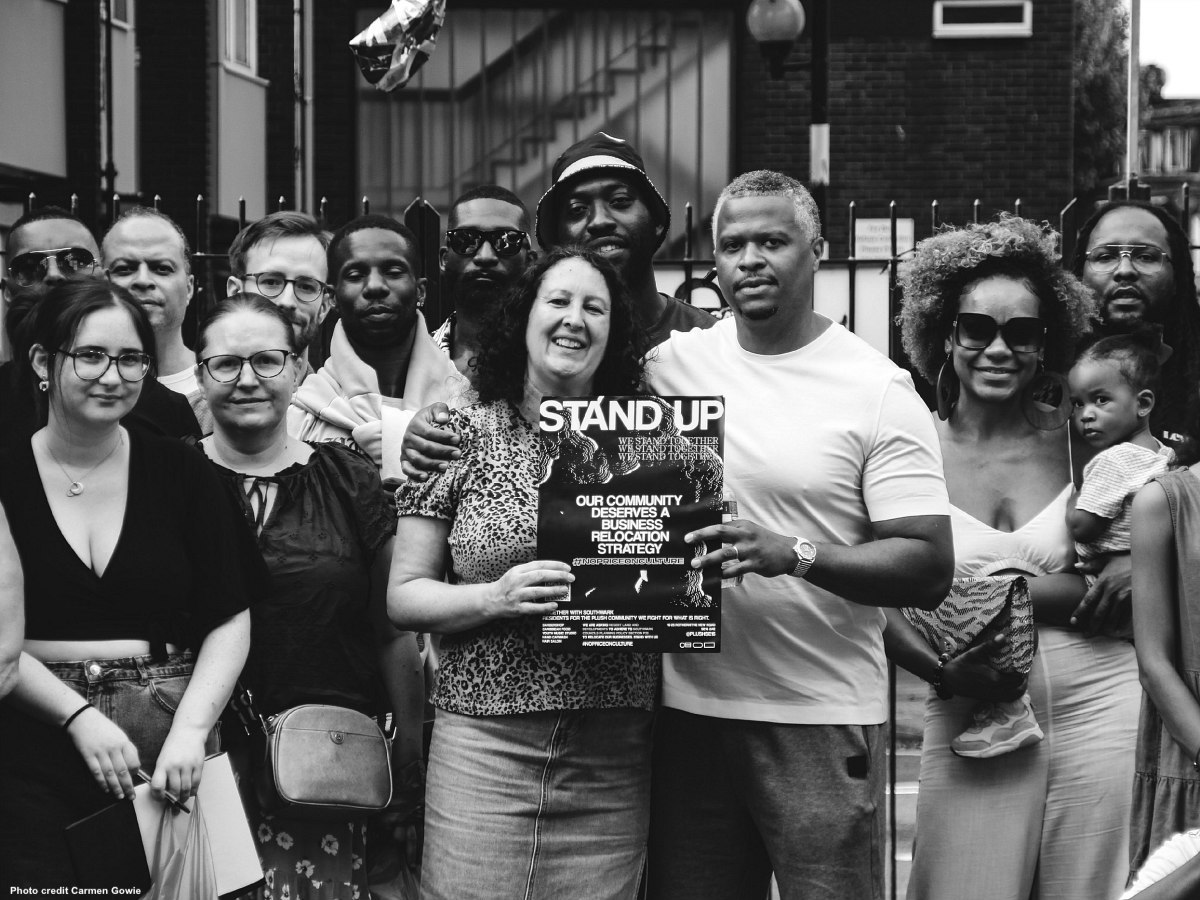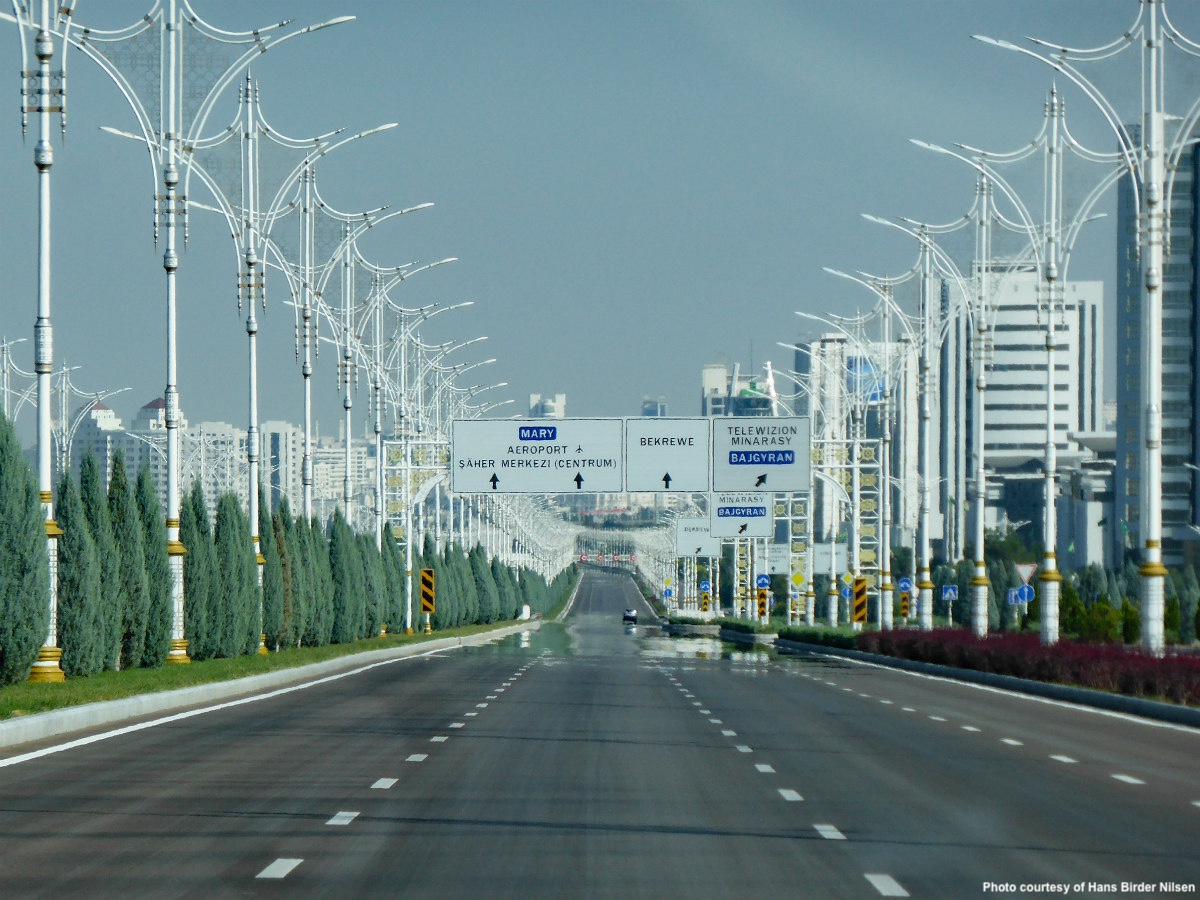The earliest haircut Michael Clinkett can remember was one he gave to his older brother, Giovanni, at home. His brother’s hair was his first trim. Clinkett dragged a kitchen chair into the poorly lit living room of their apartment in Peckham, South London, and then lifted his one clipper to the head of his brother, waiting anxiously in anticipation of Clinkett’s premiere.
“There is something magical about hair. I believe there is a science behind it. If you have a good haircut, I think it releases some kind of endorphins, and it makes you feel great. And for me, as a barber, I get instant gratification every 45 minutes,” Michael Clinkett tells me.
I have been looking forward to talking to Clinkett for a long time; the final eviction last week of his barbershop, among other businesses, gave our meeting over Zoom greater urgency. He is softly spoken, and his salt-and-pepper hair shows an apparent wisdom. Clinkett remains with a sense of calm as he explains to me his story and how harsh his life has been over the last six and a half years.
With parents originally from Mozambique, his story in London is one of continuous resilience, personal struggles, trying to make a living, navigating hardships, making friends and forming a community around five local businesses, which he christened plushse16 – for Peace, Love, Unity, Strength and Harmony. A barbershop, a ladies hair salon, a car wash, a food truck, and music studio–all these businesses provided him and his employees with an honest living for the last twenty years.
And yet, events have been set in motion such that, within just six and a half years, his landlord pushed him to the final eviction, dealing a huge blow to his two decades of effort, and to all involved.
His businesses were located all in one site at 19 – 25 Rotherhithe New Road, in a predominantly white-area in the Southwark borough of London. This area is the home of the Millwall Football Club, which has been often in the news due to fans misbehavior, and racists and homophobic chants. Until today black-owned businesses remain rare in the area.
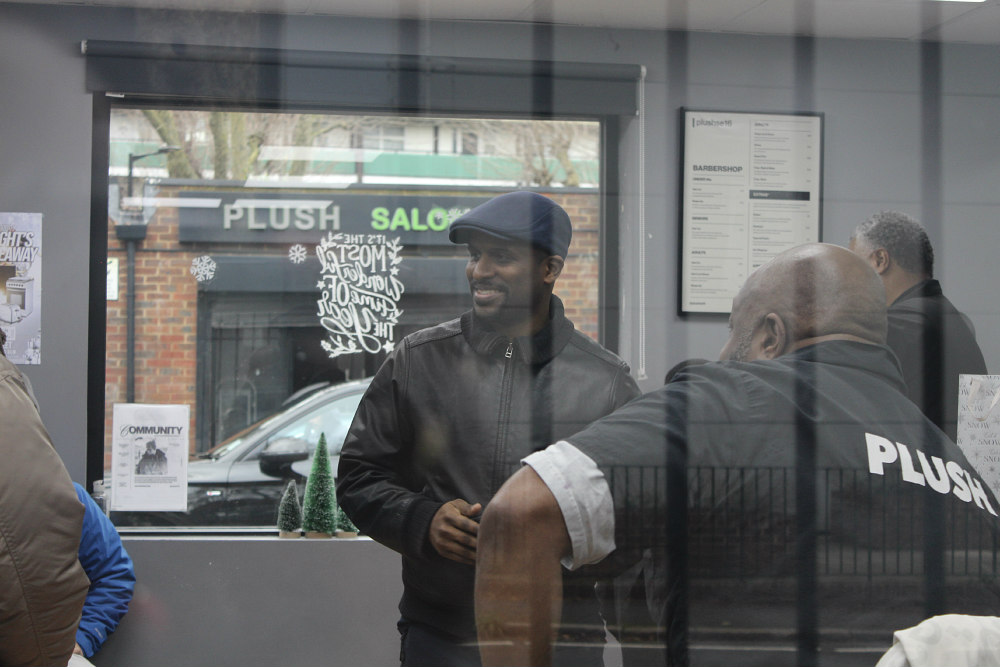
But Clinkett found belonging in the local community. He tells me that the beginnings were not easy, that the neighbors used to complain about things like the smell of food. “But I didn’t give up,” he states proudly. First came the black customers, followed by the rest. “Plushse16 became an amalgamation of two races that had contention,” he says. There was always music and loud, rolling laughter and men sharing stories that “could make people gravitate to other people’s culture.”
Also, Clinkett reckons, the invaluable debates, and almost confessional relationships between the African barbers and the customers, especially the black male ones, created a safe space for mental health and wellness. “I had customers who struggled to pay for the haircut, and now are successful CEOs. Other men were convicted and would pass the barber shop before going to probation; one of them is studying to be a robotics engineer,” says Clinkett.
***
It was May 2018 when Clinkett spotted his landlord’s agent taking pictures in and around the property. He found out that his landlord was locked in a so-called conditional contract for 12 months with the developer Regent Land and Developments, giving the developer the opportunity to apply for planning permission at the Southwark Council for the site.
During the planning permission, the developer has to provide the Southwark council with surveys and reports about all these things that they want to build – from pollution reports of the site to the orientation of the balconies in the building – and comply with all kinds of regulations.
Clinkett and his landlord had a wonderful relationship for 20 years, but when he inquired about why the site was being sold, she replied “she had no choice”. The developer will demolish the existing buildings which hosted Clinkett’s businesses, and construct a new building comprising commercial floor space at ground floor with apartments above it.
Then the first offer from the developer came. They offered to move Clinkett’s businesses into the new building, but he would have to accept fewer square meters, lose the car wash business, and pay double the current rent. He knew these conditions would put him out of business. The alternative? The developer would liquidate Clinkett with GBP 100,000; Clinkett rejected that too.

The payout couldn’t possibly cover the vast amounts of money he had invested to fix the dilapidated premises on the site when he moved in twenty years ago. But that is the least of it. The cost of displacement for all the local businesses he has built up over the years was much higher. From there on, the amount of pressure on Clinkett to come up with a figure increased until he estimated a total cost of GBP 650,000 to relocate his business – . “To find a new place, fix the new premises and lose the car wash business,” he says.
Once Clinkett was aware that the landlord was selling the site, he approached and asked the landlord if she would entertain an investor who would then obviously have a say in the project, but would ensure the businesses would be saved while keeping Clinkett a core part of the project. But not only she refused Clinkett’s offer, she also mentioned a different sale price to Clinkett than the one agreed with the developer. Clinkett will never understand why the landlord didn’t make an offer to him for the same amount. The collateral effect of the landlord’s decision is how the low changes of land ownership perpetuate in some communities, withholding any prospect of generational wealth.
Clinkett saw people coming to the site to do all the surveys and inspections, “I was sitting in the back praying they wouldn’t get the permission.” However, the developer got the planning permissions approved on February 22nd of 2022, just two months before Clinkett’s lease contract was about to expire on May 15th. Clinkett was devastated because he only had 3 months left on his lease.
In a moment of panic, Clinkett wrote to the Mayor of London on April 12th, 2022. Exactly one month later, on 12th May 2022, a reply reached Clinkett’s inbox on behalf of the Mayor that would change the course of Clinkett’s case.
Even if “the expiry of a lease is principally a commercial matter between the lessee and the landlord,” wrote the planning officer leading on the case for the Greater London Authority (GLA), “the Mayor is keen to ensure that the London Boroughs do all they can to support local businesses which may be displaced as a result of development proposals.”
And, most importantly, the planning officer pointed to a new Southwark Local Plan that contains a business relocation policy, P33, which requires a Business Relocation Strategy to be provided where existing small or local independent businesses may suffer their displacement by development.
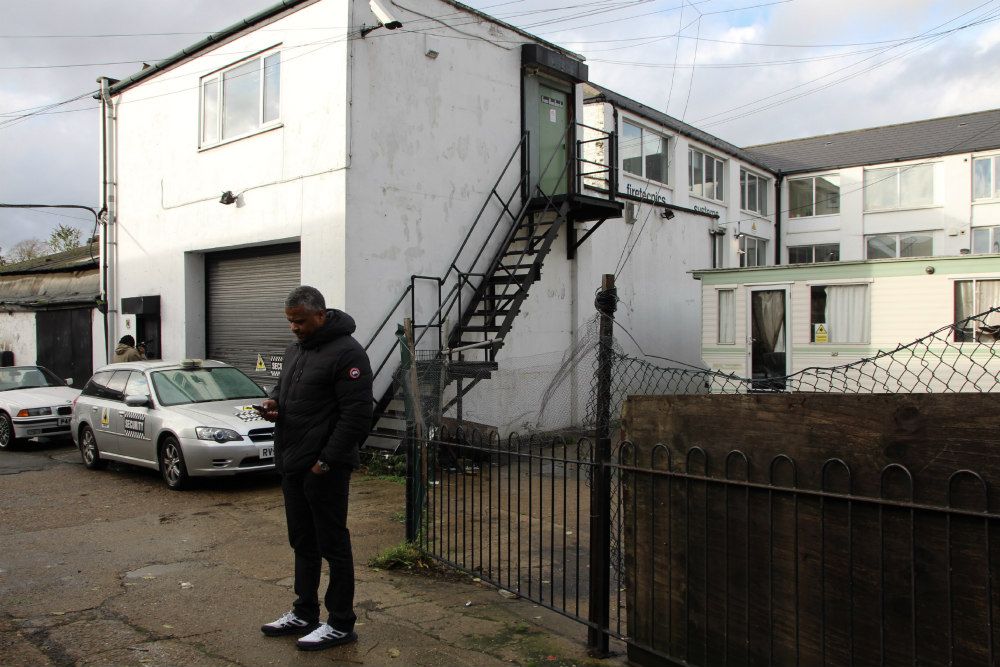
“My situation became unique because the Southwark Council failed to protect me as a long-standing tenant providing services to the community. According to the policy P33, what the developer should have done is to provide a strategy to relocate my businesses like for like,” claims Clinkett. “The developer knew this but instead of abiding by the policy, dismissed the fact that my businesses existed and ignored me. They thought my lack of knowledge would allow them to do it. I didn’t know my rights.”
***
In the three and half years since the application for planning permission went through “nobody came from the London Borough of Southwark Council to have a conversation with me,” says Clinkett. The P33 policy came to being because of a precedent-setting case that caused public furore when a beloved shopping center was demolished in the Elephant and Castle neighborhood. The local businesses inside the center had to close their doors after 55 years, without being offered a displacement strategy, pricing out an entire Latino community.
The policy should support Londoners like Clinkett. He began to liaise with the Southwark Council and the developer, whilst he stayed in the property waiting for a viable relocation strategy. Until last week. Finally, the bailiffs came to force an eviction. They follow the landlord’s instructions to deliver the property in vacant possession in 2022. Yet here we are in 2024.
In the blink of an eye, Clinkett was out of business. Not the developer. While the landlord and the developer were awaiting the final acquisition of the planning permission which is usually granted by the GLA.
“I am not against development,” points out Clinkett. But “I’ve been working my butt off in the community, keeping value in the borough” as customers from everywhere come to his businesses, and therefore his neighborhood, to spend. “Yet we [local businesses] are not being protected from displacement.” Clinkett tells me that one of the triggers for his situation is a “master plan” for urban renewal that the Southwark Council announced in 2015. Since then, the plan has drawn new developers to the neighborhood attracted by the ever increasing property values.
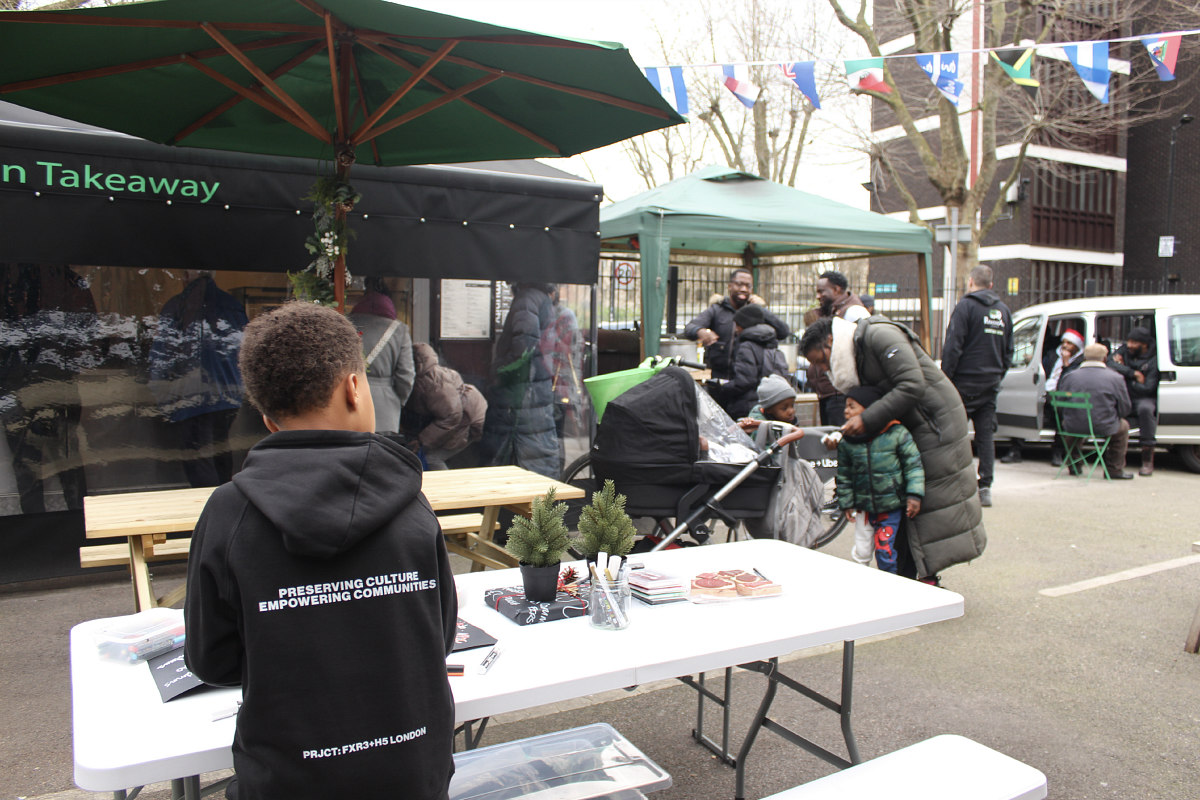
The negative impact on local residents is scary. City authorities are talking about what they are doing for local people, but none of the residents can afford to compete in this ever changing environment, and sadly, Clinkett says the profits of new developments end up in the pockets of investors who are not even living in London, but rather Singapore or China.
I tell Clinkett about the iconic project of the 11th Street Bridge Park in Washington D.C. that has so far invested $86 million in housing, workforce training, small local businesses and other equitable development strategies for local residents. It has won D.C.’s real estate market battle before the Bridge Park is even built, while at the same time avoiding the displacement of local residents.
In light of everything, I wonder if other projects or initiatives that I have covered could make a case to support Clinkett. Like the ‘Humanise’ movement that Thomas Heatherwick is leading, also in London, against an “epidemic of boringness” for new buildings in cities. Even if the issue of displacement is not its main focus, I wonder if it could have saved Clinkett’s businesses, had the developer considered what the Communications Director at Heatherwick Studio told me: “if developers would focus on interesting, not beautiful, buildings they would probably conclude that what’s interesting is probably already there. They would consider keeping it because it has attracted people to that place for the last 20 or 30 years.”
Despite the recent events, Clinkett remains upbeat. I agree when he tells me that 90% of people don’t fight back. But he made a conscious decision to keep fighting his case. “My plight stands in for the fate of other local business owners as a whole, “ he figured. He knows that he has a legal case that he could try to fight, but the legal costs are so high that it is not an option for an ordinary Londoner. And this, he admits, is how capitalism works. “I have to feed my family every day, but for the developer the economic effort is nothing. They have all the financial advantages against us,” he says. “This is how they always win.” But perhaps not this time.
Follow Plushse16 on Instagram and Michael Clinkett’s Linked-in for updates on his fight.
